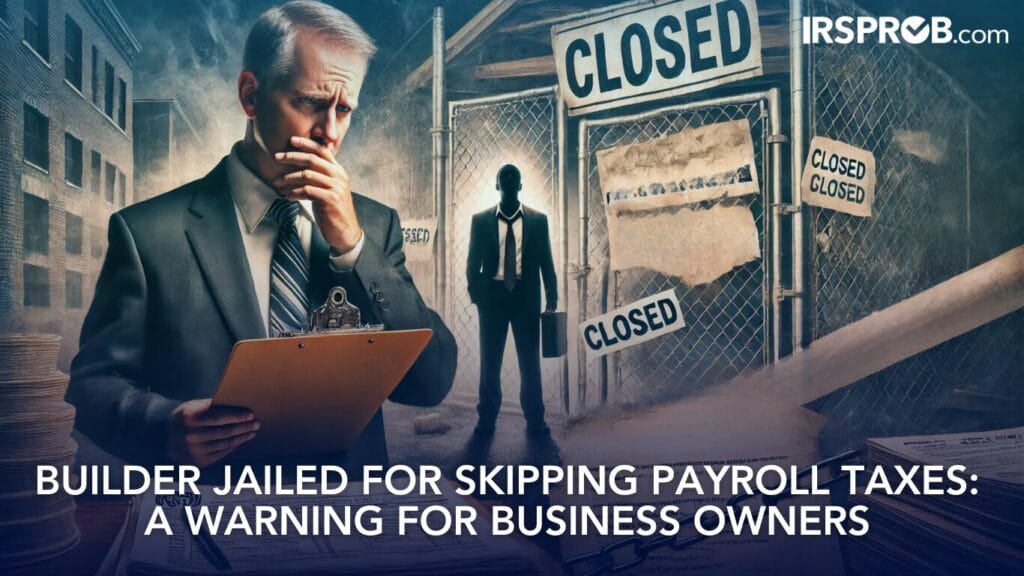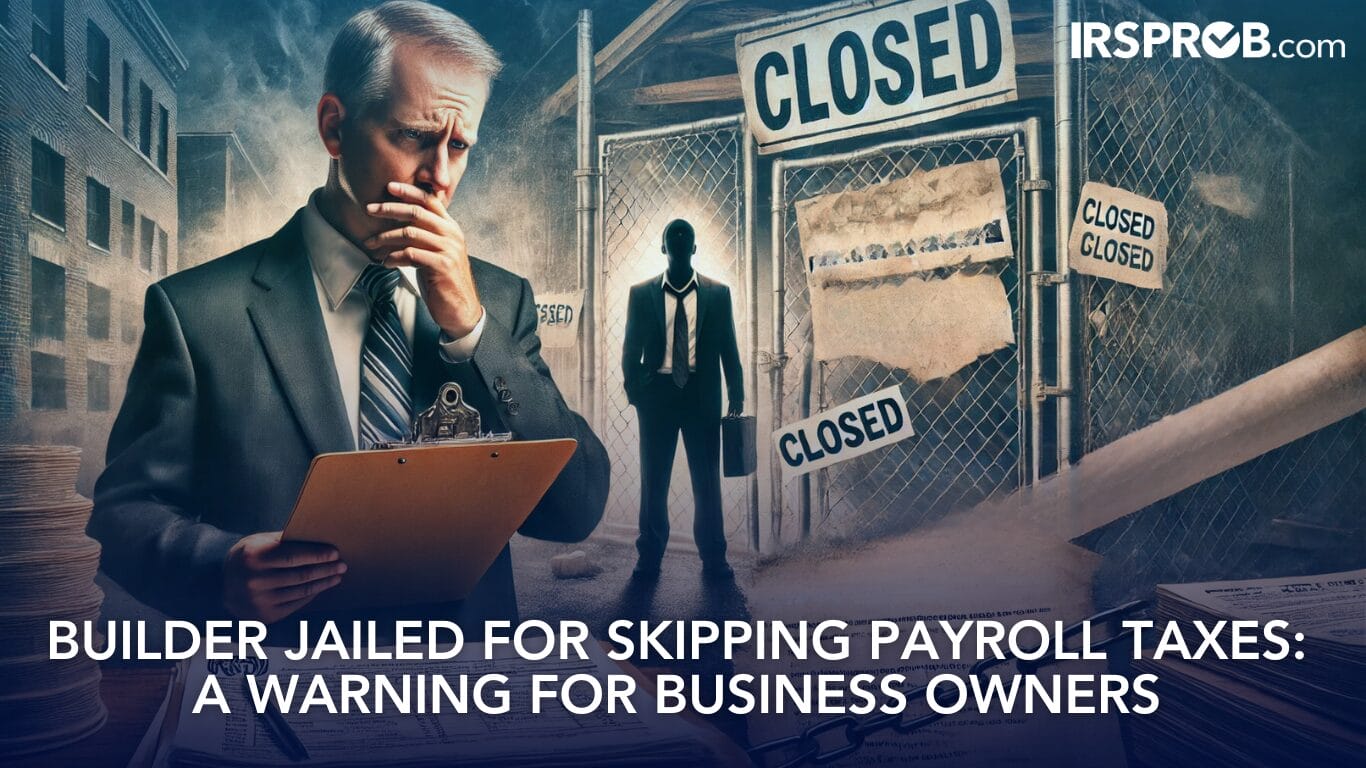
Joseph Dickey, the owner of Alpine Customs, a construction company in Montana, recently faced serious consequences for failing to remit payroll taxes. This story highlights the importance of payroll tax compliance for business owners. Here’s what happened, the impact it had on his business, and how you can avoid making the same mistake.
The Case of Joseph Dickey and Alpine Customs
From 2018 to 2021, Joseph Dickey was responsible for all accounting duties at Alpine Customs, which employed up to 60 workers. Dickey’s employees had payroll taxes withheld from their wages, but instead of forwarding these funds to the IRS, he kept them. This ultimately resulted in an unpaid payroll tax liability of $803,374.
Despite receiving regular reminders from his bookkeeper and the IRS to remit these payroll taxes, Dickey failed to do so. As a result, he was sentenced to a year and a day in federal prison, fined $75,000, and ordered to pay $207,807 in restitution. He had already paid $600,000 before his sentencing, but the remaining penalties and interest still needed to be settled.
Dickey’s case underscores the severe penalties that can come with payroll tax noncompliance. In addition to the financial hit, his criminal record now includes three felony convictions, as he had previously served prison time for assault with a weapon and drug possession.
The Importance of Payroll Tax Compliance
Payroll taxes fund essential programs like Social Security and Medicare, and the IRS takes their collection very seriously. Failing to pay payroll taxes not only harms your employees’ future benefits but also puts your business at risk of significant financial and legal repercussions. Here are a few key points for business owners to remember:
- Employer Responsibility: As a business owner, you’re responsible for withholding and remitting payroll taxes on behalf of your employees. This includes both the employee’s share and your own contributions as an employer. When these funds are withheld, they do not belong to the employer; they are considered “trust funds” that must be paid to the IRS.
- Severe Penalties: Noncompliance with payroll taxes can lead to substantial fines, interest, and, as seen in Dickey’s case, even imprisonment. The IRS can pursue criminal charges, which can severely affect your ability to operate your business and potentially lead to a complete shutdown.
- Trust Fund Recovery Penalty (TFRP): The IRS can impose a Trust Fund Recovery Penalty on individuals responsible for collecting, accounting for, and paying withheld taxes. This penalty is one of the most severe in the IRS’s arsenal and can equal the total amount of the unpaid payroll taxes.
- Regular Compliance Checks: To avoid issues, establish regular payroll tax compliance checks. Ensure that your bookkeeper or payroll service provider has clear instructions to remit taxes promptly. It’s also wise to periodically review payroll tax filings to ensure accuracy.
- Installment Agreements and Offers in Compromise: If you’re struggling to pay your payroll taxes, consider setting up an installment agreement with the IRS. In some cases, businesses may qualify for an Offer in Compromise to settle their tax debt for less than the full amount owed. However, these options require compliance with all other tax obligations, so it’s essential to remain current on all other tax filings and payments.
Lessons for Business Owners
The story of Joseph Dickey serves as a cautionary tale for business owners. Ignoring payroll tax obligations can lead to financial ruin, legal troubles, and, ultimately, imprisonment. As a business owner, you must take payroll taxes seriously to ensure the longevity and success of your business.
To safeguard your business:
- Stay informed: Regularly review IRS guidelines and updates regarding payroll taxes.
- Seek professional advice: Consulting with a tax professional can help ensure your business remains compliant with all tax obligations.
- Address issues promptly: If you encounter cash flow problems, address them immediately by reaching out to the IRS to discuss your options.
Lessons for Business Owners
The story of Joseph Dickey serves as a cautionary tale for business owners. Ignoring payroll tax obligations can lead to financial ruin, legal troubles, and, ultimately, imprisonment. As a business owner, you must take payroll taxes seriously to ensure the longevity and success of your business.
To safeguard your business:
By staying on top of payroll tax compliance, you protect not only your business but also your employees’ benefits and your personal freedom. Don’t let payroll taxes build into a problem that could tear down everything you’ve worked to build.








